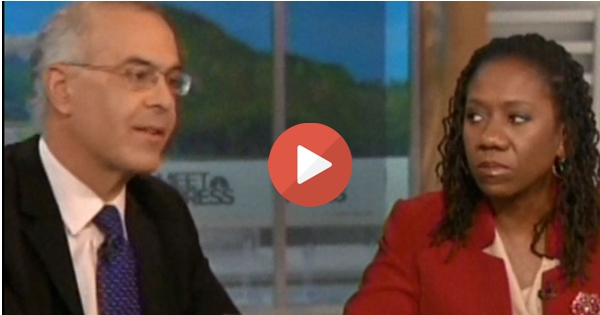David Brooks gets it right
Conservative New York Times columnist David Brooks and the President & Director-Counsel of the NAACP Legal Defense and Educational Fund Sherrilyn Ifill appeared on Meet The Press with Chuck Todd. They appeared alongside Ultra Conservative Right Wing potential GOP presidential candidate Dr. Ben Carson and Harvard Law Professor Charles Ogleetree. David Brooks and Sherrilyn Ifill had the most forward looking commentary on the racial divide and policing.
Chuck Todd played the Rudy Giuliani racist comments on his previous show. He then commented to David Brooks about the exposed prism by which Americans see race. David Brooks’ comment was near perfect.
Listen, we all have to have a new social compact on this. Whites especially have to acknowledge the legacy of racism and have to go the extra yard to show respect, understand how differently whites and blacks see some of these police issues. And whites can’t just say, “Does this look right to me?” But, “Does this look trustworthy in the African American community?”
That has to be the standard. At the same time, we have to understand that we’re no longer in the civil rights era. This is not a question of good versus evil, right versus wrong. Racial inequality has become entangled in all sorts of domestic problems of disappearing jobs, family structure, and this is mostly a question of good-intentioned people trying to do the best they can with very naughty social problems, which now overlap with racial problems.
After Charles Ogletree and Ben Carson were engaged on a few questions for which they provided standard answers, Sherrilyn Ifill chimed in.
But you know the other thing that has to be done? Is real training of police officers. If you look at some of these encounters that we’re seeing on videotape, you’re looking at the 12-year-old boy who was just killed the other day, it’s within seconds.
You’re watching these encounters in which the police arrive on the scene, and they’re unable, it seems, to de-escalate. To assess the situation. To see when we’re dealing with a child. And so police officers need real training. They need training and implicit bias. I know we like to say it’s well-intentioned people. But there are biases in this country. We do have images in our head.
That are racialized. And if you heard Darren Wilson’s testimony, when he talked about Mike Brown, almost as an animal, “He was bulking up, he seemed like Hulk Hogan.” We have these images in our head. And the only way we can deal with those images is to slow things down. Is to give police officers the training that they need to be able to manage their own biases so they can properly assess the situation.
Near the end of the segment Chuck Todd commented that during events like Ferguson, there is always talk about having the conversation on race. It never seems to happen as the urgency of the situation becomes attenuated. David Brooks provided the perfect comment to close the segment on that issue.
Yeah, I really don’t believe in the conversation about race. If we’re going to be friends, we don’t sit around saying, “Oh, we’re such great friends, let’s talk about our friendship.” We don’t need a conversation, we need a project. And a friendship is about something else. It’s outward looking. So the project has to be about social mobility.
It’s about early childhood education, all the things that failed Michael Brown. Family formation, jobs, if we have a common project about the Harlem Children’s Zone, about KIPP schools, then we’ll have something to do together. And that will unite us obliquely.
This was a very serious discussion. When serious guests appear on a panel looking for solutions as opposed to political expediences, it amazes where a discussion can go.

